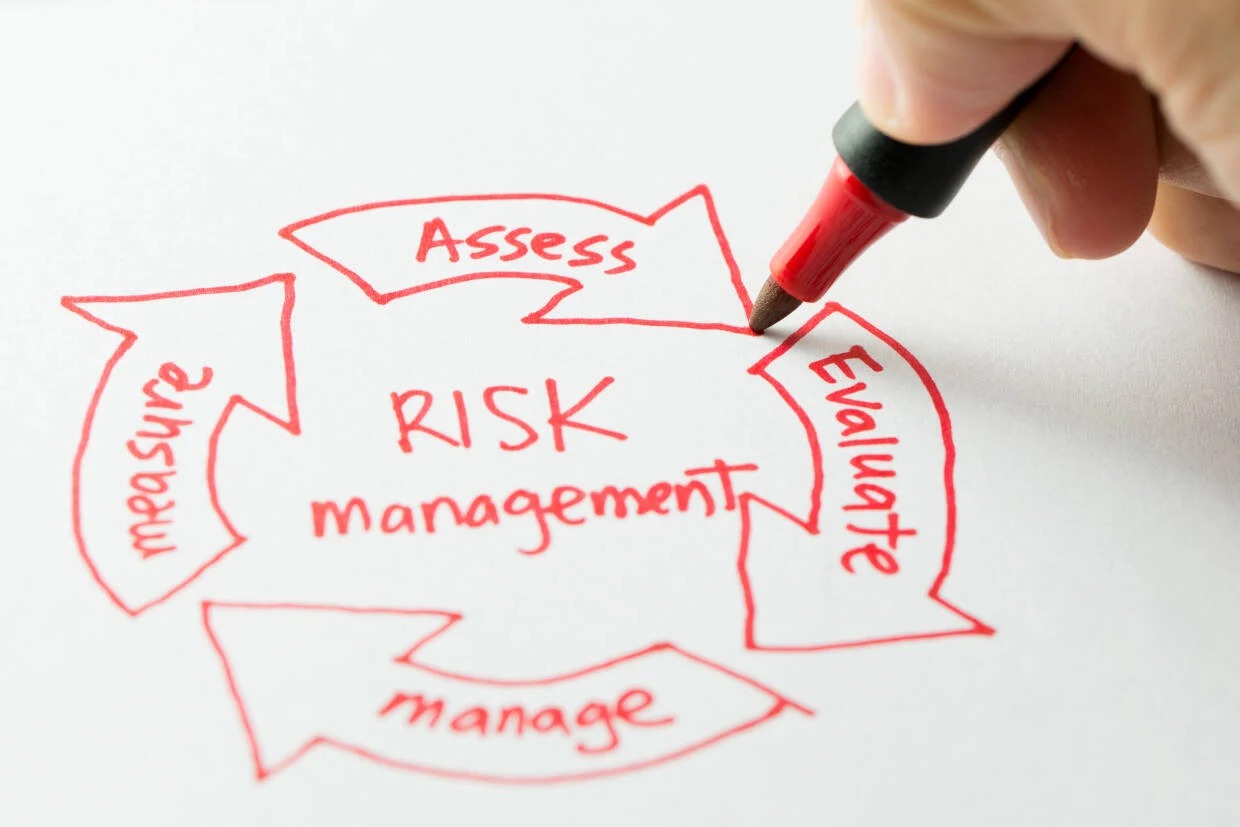

Finance
What Is Business Travel Accident Insurance?
Published: November 20, 2023
Learn about Business Travel Accident Insurance and how it protects your finances during work-related travel. Find out more about this crucial coverage.
(Many of the links in this article redirect to a specific reviewed product. Your purchase of these products through affiliate links helps to generate commission for LiveWell, at no extra cost. Learn more)
Table of Contents
Introduction
Business travel is an integral part of many professionals’ lives. Whether it’s attending client meetings, conferences, or visiting branch offices, traveling for work is often necessary. However, with travel comes certain risks and uncertainties. That’s where business travel accident insurance comes into play.
Business travel accident insurance is a type of insurance coverage designed to protect employees when they are traveling on behalf of their company. It provides financial compensation in the event of unexpected accidents, injuries, or even death that occur during business-related travel.
This insurance coverage goes beyond what standard health insurance policies typically provide. While health insurance may cover medical expenses, business travel accident insurance offers additional benefits such as accidental death and dismemberment coverage, emergency medical evacuation, and other related expenses.
The coverage provided by business travel accident insurance can vary depending on the specific policy and the insurer. Some plans may only cover the employee, while others may extend coverage to family members traveling with the employee.
In the unfortunate event of an accident or injury during business travel, this insurance can provide financial protection for medical expenses, emergency medical transportation, repatriation, and even a lump-sum payment in the event of death or permanent disability.
It’s important to understand that business travel accident insurance is different from travel insurance. While travel insurance typically covers trip cancellations, lost luggage, and other travel-related issues, business travel accident insurance is specifically focused on accidents and emergencies that occur during work-related travel.
Next, we will explore the coverage and benefits offered by business travel accident insurance to give you a clearer understanding of its importance in protecting professionals during their travels.
Definition of Business Travel Accident Insurance
Business travel accident insurance is a specialized form of insurance coverage that offers financial protection to employees who are traveling for work-related purposes. It provides coverage for accidental injuries, disabilities, and even death that occur during the course of business travel.
This type of insurance is typically offered by employers to their employees as part of their employee benefits package. It is designed to provide an added layer of protection and peace of mind for both the employees and the company. In the event of an accident or emergency during business travel, the insurance policy helps alleviate the financial burden by covering medical expenses, emergency medical transportation, and other related costs.
Business travel accident insurance differs from other types of insurance policies such as health insurance or travel insurance. Health insurance primarily covers medical expenses related to illnesses and injuries, but it may have limitations when it comes to coverage for accidents that occur during business travel. On the other hand, travel insurance typically focuses on trip cancellation, lost baggage, and travel mishaps rather than accidents during work-related travel.
Key features of business travel accident insurance include coverage for accidental death, dismemberment, and disability. In the unfortunate event of a covered accident resulting in the employee’s death, the policy provides a lump-sum benefit to the designated beneficiary. This benefit can help support the employee’s family during a difficult time.
In addition to accidental death coverage, business travel accident insurance may also cover accidental dismemberment. This means that if the employee loses a limb or suffers a permanent disability due to an accident during business travel, the policy will provide a benefit to help with ongoing medical expenses and living costs.
Furthermore, business travel accident insurance often includes coverage for emergency medical evacuation. In case of a severe injury or illness that requires immediate medical attention, the insurance policy covers the cost of emergency transportation to the nearest suitable medical facility. This coverage is especially valuable when traveling to remote areas or countries with limited medical facilities.
Overall, business travel accident insurance is a crucial form of protection for employees who frequently travel for work. It provides financial security and peace of mind, ensuring that employees are supported in the event of accidents or emergencies during business travel.
Coverage and Benefits
Business travel accident insurance offers a range of coverage and benefits that are designed to protect employees during their work-related travels. The specific coverage and benefits may vary depending on the policy and the insurance provider, but here are some common features:
- Accidental Death and Dismemberment Coverage: Business travel accident insurance typically provides coverage in the event of accidental death or dismemberment. If an employee dies due to an accident during business travel, the policy will pay a lump-sum benefit to the designated beneficiary. In case of a severe injury resulting in the loss of a limb or permanent disability, the policy will also provide a benefit to help cover medical expenses and ongoing living costs.
- Emergency Medical Expenses: This coverage reimburses employees for necessary medical expenses incurred while traveling for business. It includes coverage for hospitalization, doctor visits, prescription medications, and other medical treatments. It ensures that employees have access to quality healthcare without worrying about the financial burden.
- Emergency Medical Evacuation: In case of a medical emergency where the employee requires immediate and specialized medical attention, business travel accident insurance covers the cost of emergency medical evacuation. This benefit ensures that the employee is safely transported to a suitable medical facility, even if it requires air ambulance or specialized transportation services.
- Repatriation of Remains: If an employee passes away during a business trip, this benefit covers the costs associated with transporting the remains back to their home country. It provides assistance to the family during a difficult time and takes care of the logistics involved in repatriating the deceased employee.
- Travel Assistance Services: Many business travel accident insurance policies include additional travel assistance services. These services may include 24/7 access to a helpline for emergency assistance, travel planning advice, legal assistance, and help with lost passports or travel documents. These services are designed to provide support and guidance to employees when they encounter any unexpected situations during their travels.
It’s important to note that the specific coverage and benefits may vary depending on the policy and the insurance provider. Some policies may offer additional features such as coverage for travel delay or trip interruption due to unforeseen circumstances. It’s crucial for employees to thoroughly review the policy details to understand what is covered and what is not.
Having comprehensive coverage and benefits through business travel accident insurance is a valuable safeguard for employees. It ensures that they have the necessary financial support and assistance in case of accidents, injuries, or emergencies during their business travels.
Eligibility and Requirements
The eligibility criteria and requirements for business travel accident insurance may vary depending on the insurance provider and the specific policy. However, there are some common factors to consider when determining eligibility:
- Employment Status: Typically, employees who are on the payroll of a company or organization are eligible for business travel accident insurance. This includes full-time employees, part-time employees, and sometimes even contracted or temporary workers. The specific eligibility requirements may be outlined by the employer.
- Travel Purpose: Generally, business travel accident insurance covers employees when they are traveling for work-related purposes. This can include attending meetings, conferences, training sessions, client visits, or any other activities directly related to their job responsibilities. Personal travel or vacations are usually not covered under this insurance.
- Travel Duration: Business travel accident insurance typically covers employees for the duration of their work-related trips. The coverage may begin when the employee leaves their home or office and ends when they return. Some policies may also provide coverage during layovers or additional personal days taken in conjunction with the business trip.
- Geographical Coverage: The insurance policy may have specific geographical limitations or restrictions. It’s important to review the policy details to understand where the coverage applies. Some policies may have worldwide coverage, while others may limit coverage to specific regions or countries.
- Enrollment and Premiums: Employers typically offer business travel accident insurance as part of their employee benefits package. Employees who are eligible for the coverage may be automatically enrolled, while others may need to actively enroll during the initial onboarding process or during specific enrollment periods. Premiums may be employer-paid, employee-paid, or shared between the two.
It’s crucial for employees to closely review the eligibility criteria and any additional requirements outlined by their employer and the insurance provider. This ensures that employees have a clear understanding of their coverage and can take necessary steps to access the benefits provided by the business travel accident insurance policy.
Additionally, employees should familiarize themselves with any limitations or exclusions mentioned in the policy. These may include pre-existing medical conditions, participation in hazardous activities, or specific travel warnings or advisories.
By meeting the eligibility requirements and fulfilling any associated obligations, employees can obtain the valuable protection and benefits offered by business travel accident insurance during their work-related travels.
Claims Process
When an employee experiences an accident, injury, or other covered event during their business travel, it is important to understand the claims process for business travel accident insurance. While the specific process may vary depending on the insurance provider and policy, here are the general steps involved:
- Report the Incident: The first step is to report the incident to the appropriate parties as soon as possible. This typically includes notifying the employer and the insurance provider. They will guide you through the necessary next steps and provide you with the required claim forms.
- Complete Claim Forms: Fill out the claim forms accurately and provide all the requested information. This may include details about the incident, any medical treatments received, and supporting documentation such as medical reports, receipts, or police reports. Be sure to provide all the necessary documentation to support your claim.
- Submit the Claim: Submit the completed claim forms and supporting documents to the insurance provider according to their specified instructions. It is recommended to keep copies of all documents for your records.
- Claim Evaluation: The insurance provider will review your claim and evaluate the coverage and benefits applicable to your specific situation. They may request additional information or documentation to support the claim if needed. The evaluation process may take some time, so it is important to be patient during this stage.
- Claim Approval and Payment: Once the claim has been properly evaluated and approved, the insurance provider will proceed with the payment. The approved benefit amount will be determined based on the terms and conditions outlined in the policy. The payment may be made directly to the employee or to the designated beneficiary in the event of accidental death.
- Follow-Up and Communication: Throughout the claims process, it is important to maintain clear communication with the insurance provider. Keep them updated on any relevant information or changes that may impact the claim. They can provide assistance, answer any questions, and guide you through the process to ensure a smooth resolution.
It is essential to review the specific claims process outlined in your business travel accident insurance policy. Each insurance provider may have slight variations in their procedures and requirements. By understanding and following the claims process diligently, you can ensure that your claim is processed efficiently and that you receive the benefits you are entitled to.
Remember to keep all relevant documentation, including claim forms, medical reports, receipts, and communication with the insurance provider, organized and easily accessible throughout the claims process. This will help facilitate the evaluation and approval of your claim.
By being proactive, providing accurate and complete information, and maintaining open communication, employees can navigate the claims process effectively and receive the necessary financial support during their recovery from the covered event.
Importance of Business Travel Accident Insurance
Business travel accident insurance plays a crucial role in providing financial protection and peace of mind to both employees and their employers. Here are some key reasons why this type of insurance is important:
- Financial Protection: Business travel accidents can have significant financial consequences. Medical expenses, emergency medical transportation, repatriation, and loss of income due to disability or death can create a heavy burden for employees and their families. Business travel accident insurance helps alleviate these financial burdens by providing coverage for these expenses, ensuring that employees and their families are not left with exorbitant bills.
- Enhanced Employee Benefits Package: Offering business travel accident insurance as part of an employee benefits package helps attract and retain top talent. It demonstrates that the company values the well-being and safety of its employees. This, in turn, improves employee morale and loyalty, leading to increased productivity and job satisfaction.
- Peace of Mind: Knowing that they are protected by business travel accident insurance gives employees peace of mind when embarking on work-related trips. They can focus on their work and duties without worrying about the potential financial risks of accidents or emergencies. It allows employees to travel with confidence, knowing that they have a safety net in place.
- Support during Emergencies: Accidents and emergencies can happen unexpectedly, especially when traveling to unfamiliar locations. Business travel accident insurance provides access to emergency medical assistance, ensuring that employees receive the necessary medical attention without delay. It also covers emergency medical evacuation, which can be crucial in accessing specialized medical care in remote or underserved areas.
- Protection for Employers: Employers have a duty of care towards their employees. By providing business travel accident insurance, employers demonstrate their commitment to the well-being and safety of their staff. This coverage protects employers from potential liability and legal repercussions in the event of accidents or injuries during business travel.
- Global Coverage: For companies with international operations or employees who travel abroad frequently, business travel accident insurance provides valuable global coverage. It ensures that employees are protected no matter where their work takes them, offering consistent benefits and support regardless of the location.
Overall, business travel accident insurance is a vital component of a comprehensive risk management strategy for companies that frequently send employees on business trips. It provides financial protection for employees and helps mitigate potential risks associated with work-related travel. Employers who invest in this insurance demonstrate their commitment to employee well-being, which contributes to a positive corporate culture and fosters a sense of security among their workforce.
Key Considerations when Purchasing Business Travel Accident Insurance
When purchasing business travel accident insurance, there are several important factors to consider to ensure that you choose the right policy for your needs. Here are some key considerations:
- Coverage Limits: Evaluate the coverage limits provided by the insurance policy. Consider factors such as maximum benefit amounts for accidental death, dismemberment, and medical expenses. Ensure that the coverage limits are sufficient to meet your needs and provide adequate financial protection in the event of an accident or emergency.
- Scope of Coverage: Review the scope of coverage offered by the policy. Consider factors such as the geographical coverage, whether it includes international travel, and any specific limitations or exclusions mentioned in the policy. Ensure that the coverage aligns with your travel requirements and the destinations you frequently visit.
- Additional Benefits: Assess any additional benefits offered by the policy. Look for features such as emergency medical evacuation, repatriation of remains, travel assistance services, and other valuable provisions. These additional benefits can greatly enhance the support and assistance available to you during your business travels.
- Exclusions and Limitations: Carefully review the policy’s exclusions and limitations. Understand what is not covered, such as certain pre-existing medical conditions or participation in hazardous activities. Be aware of any waiting periods or specific requirements that must be met in order to qualify for coverage. Understanding these limitations upfront helps avoid surprises and ensures that you have realistic expectations about the scope of coverage.
- Claims Process and Support: Consider the efficiency and effectiveness of the insurance provider’s claims process. Look for a company with a streamlined and customer-friendly claims process, including clear guidelines for reporting accidents, filing claims, and receiving benefits. Read reviews or seek feedback from others who have had experience with the provider to assess their reliability and responsiveness in handling claims.
- Cost and Value: Assess the cost of the insurance premium in relation to the coverage and benefits offered. Compare quotes from different insurance providers to ensure you are getting the best value for your money. Remember that the cheapest option may not always provide the most comprehensive coverage, so consider the overall value and suitability of the policy for your specific needs.
It is also recommended to consult with an insurance professional or broker who can provide guidance and help you navigate the process of selecting the right business travel accident insurance policy. They can help assess your specific needs, explain policy details, and assist in finding the most suitable coverage options.
By carefully considering these key factors, you can make an informed decision when purchasing business travel accident insurance and choose a policy that offers comprehensive coverage, financial protection, and peace of mind during your work-related travels.
Conclusion
Business travel accident insurance is a valuable form of coverage that provides financial protection and peace of mind for employees and employers alike. As professionals frequently embark on work-related journeys, it is essential to recognize the importance of this insurance and make informed decisions when purchasing a policy.
By understanding the definition and coverage offered by business travel accident insurance, employees can recognize the additional benefits it provides beyond standard health insurance and travel insurance. The coverage for accidental death and dismemberment, emergency medical expenses, medical evacuation, and repatriation of remains ensures that employees are protected in the event of accidents or emergencies during business travel.
When considering the purchase of business travel accident insurance, key factors such as coverage limits, scope of coverage, additional benefits, exclusions and limitations, claims process, and overall value should be carefully evaluated. Assessing these factors allows individuals to select a policy that aligns with their specific needs and provides comprehensive coverage.
Companies offering business travel accident insurance as part of their employee benefits package demonstrate their commitment to the safety and well-being of their employees. This insurance not only protects employees but also offers support to employers by mitigating potential liability risks associated with work-related travel accidents.
In conclusion, business travel accident insurance is a vital safeguard for employees and employers during work-related trips. It provides necessary financial protection, peace of mind, and support in case of accidents, injuries, or emergencies. By understanding the importance of this insurance and making informed decisions, both employees and employers can navigate business travel with confidence knowing that they are protected and supported throughout their journeys.














